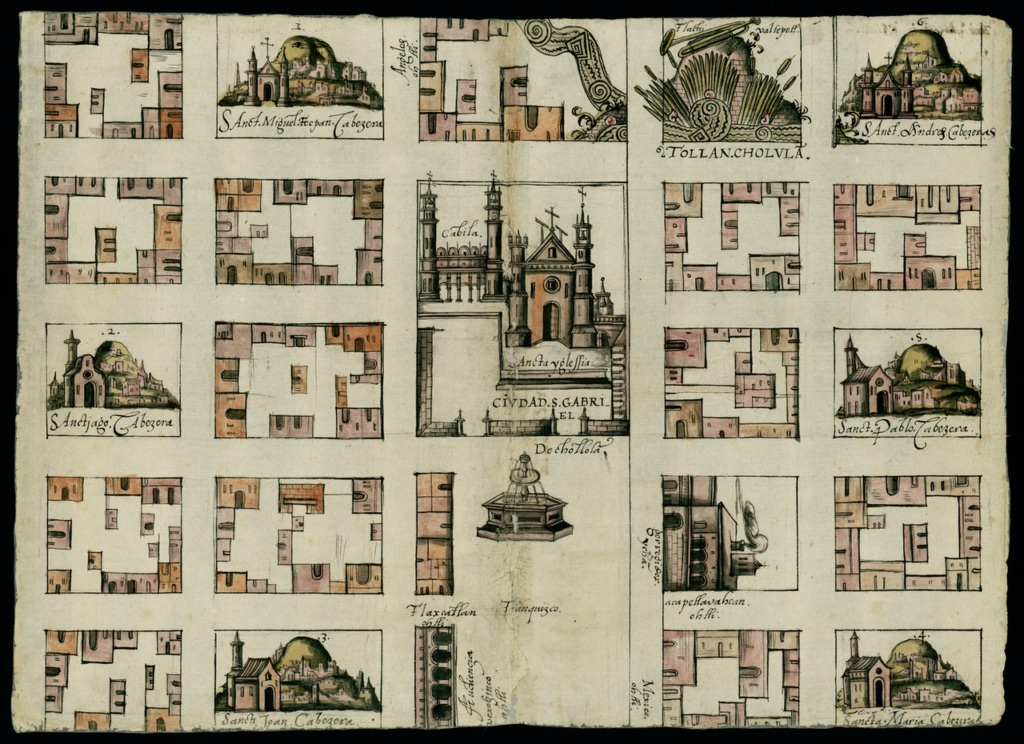
As a student of religion and modernity, one important upshot I derive from Wrestling with God: Ethical Precarity in Christianity and International Relations is that contemporary humanitarianism, still dominated by Christian organizations, continues with, but also diverges in important ways from, the long legacy of Euro- and Christian-centric colonial extraction and epistemic (and material!) violence. Lynch’s nuanced account of intra-Christian ethical debates regarding conversion, displacement, elimination, and now humanitarianism and “soft power,” is important because, first, it problematizes an overly simplistic critique of modernity and Christianity’s complicity with empire and, second, it demands an intersectional approach to religion and politics. These are the two issues I highlight here. The first is very much present in Lynch’s text and relates to the shocking reverberation of colonial discourse in contemporary technocratic humanitarianism and other facets of religion and international relations. The second point is likewise present, though only implicitly so, in the book’s accounts of prophetic and liberationist Christian actors as well as in non-White theologians’ effort to imagine decolonial and polydoxic horizons. Their inclusion in the book offers an encouraging avenue for future research trajectories that seek to decolonize “religion” and the practices of religion in international, global, and local relations.
Lynch examines the symbiosis between “western Christianity” and secularism through her analysis of internal ethical contestations. The upshot is a more capacious, historically attuned, and theologically pluralistic account of Christianity and secularity as discursive traditions. This is important if only to challenge overly simplistic, unhelpful, and reductive accounts of Christianity’s role as midwife in the consolidation of western colonialism and neocolonialism. Such accounts now constitute a foil for decolonial epistemologies and emancipatory (reactionary) narratives that end up flirting with reifying the “west” and Christianity as mechanisms of empire. Walter Mignolo, for example, writes: “The decolonial—in contradistinction to Christianity, liberalism, Marxism, and neoliberalism—is not another option for global design . . . but it is an option to delink from all global designs promoting local resurgences and reemergences confronting and rejecting, unmasking their fundamentalism and pretense of ‘chosen’ people to arrogate themselves the right to run the world” (147).
While today the language of mission framing humanitarianism is no longer explicitly one of violent conversion, power dynamics are entrenched nonetheless in multiple registers of proselytizing, through both “secular” and “religious” forms. In particular, I found the concept of “donor proselytism” (which Lynch develops together with Tanya Schwarz in an earlier work) effective in illuminating the way neoliberalism shapes humanitarianism in its secular and religious registers. Lynch’s work brilliantly demolishes the pretenses and proclaimed benevolence of contemporary Christian or “faith-inspired” humanitarianisms for their persistent complicity and symbiotic relations with neoliberal developmentalism and anti-Muslim orientalist securitizing discourse. Indeed, they cannot be analyzed as one nefarious constant, moving like a “one eyed giant” through the centuries, but instead should be understood as historical epochs and universalizing cosmologies/ideologies that rhyme with one another. Conquest in one and neoliberal structural adjustment in another are undeniable, as are the internal efforts to make such violence more ethically palatable. To such a degree we do identify casuistry, it is carried out by Christian actors who, on a case-by-case basis, apply theoretical and moral frames to concrete realities within the confines of unrelenting power differentials. I refer to this kind of variation as the “priestly” variety of humanitarian practitioner. This person was initially an actual priest, but now more often is a person who can be identified with a class of practitioners best described by what I refer to as a “religiocrat.” These are the actors (though she does not use my labeling) who populate the humanitarian spaces Lynch examines.
Lynch’s work brilliantly demolishes the pretenses and proclaimed benevolence of contemporary Christian or “faith-inspired” humanitarianisms for their persistent complicity and symbiotic relations with neoliberal developmentalism and anti-Muslim orientalist securitizing discourse.
Lynch’s book, which she describes as “a genealogy of wrestling” (235), or intra-Christian casuistry (turned eventually into variations on enduring civilizational discourses within the contemporary framing of humanitarianism) therefore clearly shows the troubling continuities between the landmark debate between Bartolomé de las Casas and Juan Ginés de Sepúlveda at Valladolid, Spain (1550–1551) and contemporary ethical grappling with tensions between the International Religious Freedom Act (IRFA) and the Code of Conduct for Humanitarian Assistance. If the popular casuistry of missionaries in the one context of sixteenth century Spain “soften[s] the edges of colonialism” (236), as Lynch writes, the contemporary relinking of “religious freedoms” with military and strategic articulations that occurs with the IRFA and subsequent articulations of contemporary policies rhymes with this legacy in troubling ways. It is interesting to locate variations within the “priestly” discourse of empire, but the overall outcome is hegemonic, paternalistic, and leads the actors involved to seek out justifications for violence in its multiple forms.
The cooptation of contemporary Christian humanitarianism into neoliberal developmentalist discourse results in the depoliticization of communities who are taught to link their “dignity” to being economically self-sustaining. Indeed, there is nothing new about such paternalism. Neoliberal technology and its patterns of “donor proselytism” simply constitute a reconfiguration of earlier varieties of a civilizational discourse. Regardless of this foil for decolonial demystification, Lynch wants us to know about internal debates and that our analysis of Christianity, imperialism, and neo-imperialism, i.e. the story of modernity, is in effect not a “one-eyed giant” simply reconfiguring its oppressive script through different currencies, be they conversion, democracy, or development/humanitarianism. The debates that Lynch conveys, tracing casuistry and “wrestling with God,” are important, but they also reveal the endurance of the modernist construction of religion as an instrument of colonial control and taxonomy as noted by scholars such as David Chidester, Charles Long, and Tomoko Masuzawa. Indeed, the neoliberalization of “faith-inspired” or “faith-based” humanitarianism consolidated a new class of “priestly” operatives facilitating devolutionary technologies and otherwise entrenching systemic structural forms of violence. Lynch does not end there. She illuminates prophetic registers in the discourse of those working in the humanitarian field as well. These are not only associated with religious and spiritual exemplars but also with a prism that highlights systemic and structural violence by focusing on epistemologies from the margins. Such epistemologies must be embodied in the experiences of marginality, and hence they also must immediately constitute an intersectional analytic intervention.
This is precisely where Lynch’s discussion of Christian liberation theologians exposes an important disjuncture between the ironic depoliticizing effects of religious humanitarianism (and cooptation of the so-called “religious actors” into peacebuilding and development policy designs and practices) and religion’s apparent new-found visibility in the “postsecular” moment. What Lynch does is show through a careful study of primary sources that this postsecular discovery of religion does not constitute a departure from the symbiosis of Christianity and secular modernity, but rather represents its perpetuation through other idioms and technologies. Hence, it is important to do what Lynch does and highlight epistemologies of those on the Christian margins. Such epistemologies by default are deeply political and intersectional and thus resist depoliticization. Lynch examines the case of the Harlem Renaissance in Chapter 4, for example. This example forces us to think of “religion” and “race” together through an analysis of coloniality. Such an analysis brings to the fore the long and enduring patterns of gendered racialization and exploitative economic configurations. This intersectional mode already takes me to the second point I wanted to underscore.
What Lynch does is show through a careful study of primary sources that this postsecular discovery of religion does not constitute a departure from the symbiosis of Christianity and secular modernity, but rather represents its perpetuation through other idioms and technologies.
The religion and development/peacebuilding/humanitarianism industry which Lynch challenges powerfully deploys religion in its modernist abstract form as a set of principles, ritual practices, networks, institutions, and leaders/actors that supposedly have the keys to unlocking elusive “local” communities and mobilizing them as forms of “capital” (in the neoliberal devolutionary spirit). Disentangling “religion” from race and racialization by focusing on utilitarian engagement with religion as a positive force to alleviate suffering reinforces modernist epistemic moves that retain colonial difference. The deployment of religion as a tool of humanitarianism/development/peacebuilding, therefore, is decidedly non-intersectional, by design. Lynch is alluding to this point when she writes in her conclusion about the cynical use of the concept of “human dignity” as a way to erase socioeconomic and systemic violence, or structural sin. She writes: “The concept of dignity connects liberationist and humanitarian ethics, but its meaning has changed. Instead of the poor and marginalized taking the lead in structural transformation according to liberationist ethics, humanitarianism depends upon the paternalism of actors employing largely western epistemologies and modes of action to help others who suffer” (239). Dignity is only one of the “nice” concepts deployed within a neoliberal and technocratic landscape of the global engagement with religion. Such an engagement contributes to the ironic depoliticization of religion through its very politicization (a “soft power”) in the discourse of empire. This is indeed a familiar history that Lynch’s account exposes while gesturing toward the possibility of its transformation through what Mignolo calls “epistemic disobedience.” Indeed, I think that the concept of wrestling is more fitting to the prophetic mode of disruption and resistance than to the missionary and/or contemporary humanitarian priestly adjudication of competing ethical grammars. Still, I wonder if Lynch’s historical and ethical work can help us think about how to reimagine human rights and the concept of dignity through decolonial theological and political prisms. This would amount to a worthy undertaking.

